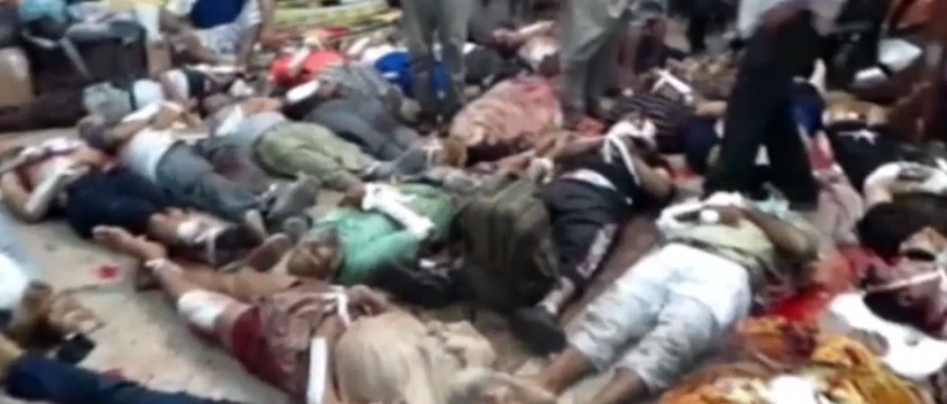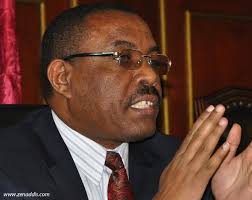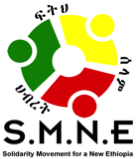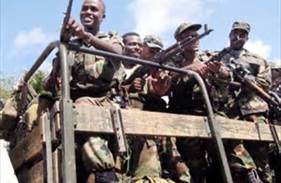In many parts of the world development has become an invisible cloak under which all manner of “state sponsored” atrocities and human rights violations are being committed. Married to growth, development has been (largely) reduced to economic advancement – meaning maximizing Gross National Product (GNP) figures month on month, year on year, and turning over glowing returns to the insatiable global monetary bodies – The World Bank and International Monetary Fund (IMF) and – profit to private investors.
A term overflowing with contradictions, development is often employed to dignify corporate activities, which are commonly no more than exploitation and profiteering, as in the case of the worldwide appropriation of land, usually to irresponsible, profit-driven foreign corporations and private hedge funds and equity fund managers, who boast of returns between 20% to 40% on investments. Huge pay offs which Anuradha Mittal of the Oakland Institute says is luring in “endowments including university endowments such as Harvard University, Vanderbilt University” and others. Such institutions Friends of the Earth, state “are stimulating land grabbing, which is destroying thousands of communities worldwide. “The financial sector”, they demand, “must take responsibility for their activities and ensure their investments respect human rights and abide by local environmental regulations”.
A broader more substantive definition of development would include the fulfillment of innate potential, the continuation of traditional lifestyles and the integrated development of individuals. Ideas that go beyond crass GNP or GDP measurements, globalisation statistics and Power Point clichés, which sees everything as a commodity and everyone as a consumer.
The homogenisation of life, a consequence of globalization, and the market economy (with its inherent inequality and lack of social justice), denies individuality, squashes or appropriates culture and imposes competition in all areas. A recipe for injustice and division fuelling anger and frustration, which for long suppressed, have surfaced in the popular uprisings of the Arab Spring and protest movements seen recently throughout the world.
The Lower Omo Valley
Over 70 different tribal groups contribute to the rich cultural tapestry that makes up Ethiopia. The beautiful Lower Omo Valley, in the south east of the country is home to a group of eight ancient tribes, indigenous people who have lived upon the land, for thousands of years, leading self-sufficient, simple lives in harmony with the environment. They live east and west along the 760 km long Omo River (the heartbeat of their lives), which flows from Ethiopia into Kenya, where it comes to rest in Lake Turkana.
In order to develop the rich and fertile land of the region, and honour leasehold agreement with foreign companies, the government is evicting indigenous people from their homes and driving them into settlement camps where, “the government promises us paradise, but we know that we are going to hell,” says one of the aggrieved Bodis, “Between tribes we have always found a solution, when a land conflict has arisen, but with the government it’s impossible”, the Oakland Institute (OI) report in Omo Local Tribes Under Threat.
Their homes destroyed and their land stolen from them, local people (including children and women) tell of horrendous government abuse. These ancient people are, (they themselves say) being subjected to a range of atrocities constituting state criminality: the list of atrocities, shocking and vile, is made no less disturbing by its familiarity: arbitrary killings, rape, false imprisonment and torture are the methodology of the Ethiopian People’s Revolutionary Democratic Front (EPRDF) in the region as they clear people off land that is rightfully theirs, and either forcibly relocate them into state constructed villages, drive them into the forests to perish, or simply kill them in cold blood.
Land rights are complex, and whilst the Ethiopian constitution (written by the ruling regime but used at its convenience), states that all land ultimately belongs to the state, indigenous people are protected by a range of international treatise, to which Ethiopia is a signatory and binding articles within their own constitution. In addition, the government has said that the only land appropriate to be leased is land described as ‘marginal’, ‘unused’ or ‘wasteland’. Land regarded by the government as marginal is seen as central to the lives of indigenous people.
“Because the land is traditionally owned, under international law the traditional owners have the right to it as property. Changes to its use or seizure are illegal without the consultation and compensation of the lands’ traditional owners”, Human Rights Watch (HRW) make clear in their report ‘What Will happen If Hunger Comes”. As well as protecting indigenous people the constitution also safeguards agro-pastoralists (which the majority of affected tribal groups are made up of); section 40 (5); “Ethiopian pastoralists have the right to free land for grazing and cultivation as well as the right not to be displaced from their own lands”. Driving local people off their ancestral land which supplies their food and medicine, also breaches the International Covenant on Civil and Political Rights (ICCPR), which states, “in no case may a people be deprived of its own means of subsistence”. Add to this the violation of the Right to Culture and Religion and the Right to Health and a substantive legal shield forms to protect the tribal people in the Omo Valley, from government development plans. That is, providing such legal obligations are observed and enforced.
Gibe III Dam and Associated Land Development
Remote and culturally diverse, with prized United Nations Educational Scientific and Cultural Organization (UNESCO) World Heritage status, the Lower Omo valley is home to over 200,000 indigenous tribal people, including the Kwegu, Bodi, Mutsi, Suri and Nyangatom tribes. Their ancient ways of life and the delicate ecosystem, is being threatened, HRW report, “by the construction of a massive hydroelectric dam, known as Gibe III, on the Omo River and associated plans for large scale irrigated agriculture”. The massive Gilgel Gibe III dam was started in 2006, and we are told, is now 62% complete. Funding for the $2 billion project has come from a range of sources, including the Industrial and Commercial Bank of China (ICBC). The Europeans looked at the project and, concerned by the lack of impact assessment studies, culturally appropriate project consultations (required under the constitution), and under heated pressure from NGOs, wisely decided not to get involved, as did the World Bank.
International and regional aid organisations, Survival International (SI) among them, believe “the Gibe III Dam will have catastrophic consequences for the tribes of the Omo River, who already live close to the margins of life in this dry and challenging area”. Gibe III, no doubt much to the delight and misplaced pride of the government, will be the largest dam of its kind in Africa (243 meters tall), causing potentially some of the worst environmental and human carnage, by seriously impacting the lives of tribal groups of the Lower Omo area, as well as the 300,000 people who live around Lake Turkana in Kenya, which receives the majority of its water from the Omo River.
Water from the dam, which will double Ethiopia’s energy capacity, will be stored in a giant reservoir which will feed the plantations (445,000ha has so far been earmarked by the government) via hundreds of kilometers of pipelines. “Up to 200 kilometers (125 miles)” of such primary irrigation canals have already been built, along with an “earthen dam” to water the plantations which, OI tell us, “has stopped the annual flood that all people along the river depend on for agriculture, and in the process inundated cultivation sites of the Bodi and Kwegu people upstream.” In addition, SI makes clear; the combined effects of the projects “will result in the drying out of much of the riverine zone and will eliminate the Riparian Forest. Indigenous people such as the Kwegu who rely almost exclusively on fishing and hunting will be destitute”. One could be forgiven for thinking that this government is working to intentionally decimate native peoples’ lives and shatter the delicate ecology of the region.
The construction of the Gibe III dam and the interconnected development project of leasing ancestral land for agriculture (including bio-fuels), are being pursued by the government in a manner that is violating a range of human rights, as well as internationally binding legal agreements. Both schemes have been widely condemned by human rights groups and concerned NGOs, even USAID, Ethiopia’s largest single donor have berated the regime over their mistreatment of indigenous people.
Ideologically driven by narrow, distorted ideas of development and obsessed with economic growth, the EPRDF is pursuing a land sale policy that is causing enormous suffering to the lives of hundreds of thousands of indigenous people throughout the country. With the Lower Omo Valley projects there is a real risk “that the livelihoods of 500,000 people may be endangered, tens of thousands will be forcibly displaced, and that the region will witness increased inter-ethnic conflict as communities compete for scarce resources” HRW tell us.
Over 375,000 ha of fertile land in the Lower Omo valley, the Oakland Institute (OI) report in ‘Ignoring Abuse in Ethiopia’, is being turned over for “industrial scale plantations for sugar and other monocrops“ – the controversial, albeit high yield agricultural practice, of growing a single crop, year after year on the same land. Such methods damage the soil ecology, creating dependency on pesticides and fertilisers (all good for the agro-chemical giants) and use lots of water. Driven solely by profit, investors are only interested in high-quality, well irrigated water with good water supplies: they care little about the environmental impact on eco-systems and the devastation being caused to indigenous people and rural livelihoods, nor would it seem do the ruling EPRDF.
HRW estimate “around 100,000 ha is being made available to private ‘investors”, corporations from Malaysia, India, Italy and Korea who are planting biofuels and cash crops, e.g. cotton and maize. Together with state-owned sugarcane and cotton plantations run by the Ethiopian Sugar Corporation – an umbrella organisation of the central government, (which has taken 150,000 ha of tribal land for itself) and whose operations OI state, “will [negatively] impact the people of the Lower Omo most, especially the 170,000 along the river”.
Violent Evictions Killing and Rape
Mass displacements are accompanying these projects, OI report “260,000 local people from 17 ethnic groups in the Lower Omo and around Lake Turkana [in Kenya]—whose waters will be taken for plantation irrigation—are being evicted from their farmland and restricted from using the natural resources they have been relying on for their livelihoods”. The military are the violent enforcers of much of the regimes unlawful policies up and down the country, and so it is in the Omo valley: HRW record that “on the east bank of the Omo River, where farms are being cleared, grazing lands have been lost, and livelihoods are being destroyed. According to government maps and local sources this is just the beginning of a major transformation of the Lower Omo area”, [where] more than 2,000 soldiers are said to have been drafted into the area downstream of the dam and “most of the Omo valley is now off limits to foreigners”, The Guardian (7/02/2013) report. Including the international media and NGOs, “virtually no nongovernmental organisations (NGOs) work in the area, and members of indigenous communities have been warned not to speak to outsiders, especially foreigners“. Government gagging practices consistent with their approach elsewhere, the Ogaden and Gambella regions, as well as Oromia, where state terrorism is widespread, come readily to mind.
This re-settlement of indigenous people to allow for the commercialization of their land is taking place without the “free, prior and informed” consent (legally) required for any development project, with no compensation for loss of land and livelihood and without consultation, required within the constitution.
Indeed far from consulting with local people and allowing them the right to speak out freely (another constitutional fantasy), military units regularly visit villages, HRW record, to “suppress dissent related to the sugar plantation development [and associated re-settlement plans]. According to local people anything less than fully expressed support for sugar development was met with beatings, harassment, or arrest”. According to The Guardian killings and repression are now common, and go on to recount the story of a villager who says he “was shot with a bullet in my knee [when walking on his land]. That day 11 people were killed and the soldiers threw four bodies off Dima Village Bridge. They were eaten by hyenas”. Rape is a military weapon of choice being employed to frighten and intimidate, OI relay the particularly distressing account of “the gang rape of a young herd boy. They took a small boy that was herding cattle. They had sex with him for a long time in the forest. He was screaming. The boy couldn’t walk afterward. He had to be picked up and carried”.
Frustrated and angry and seeing no alternative, members of the Suri tribe on the west bank of the Omo river have taken up arms against the military. The government has decimated their land, clearing trees and grass to “allow Malaysian investors to establish plantations, water has also been diverted from the mainstay Koka River to these plantations leaving the largely pastoral Suri without water for their cattle”, according to the Oakland Institute. Government forces are maintaining a brutal campaign aimed at the Suri people. Friends of Lake Turkana, a Kenyan NGO reported in May 2012 that, “government forces killed 54 unarmed Suri in the market place at Maji in retaliation [to Suri actions against the military]. It is estimated that between 57 and 65 people died in the massacre and from injuries sustained on that day. Five more Suri have been killed since then… [and] Suri people are being arrested randomly and sentenced to 18, 20, and 25 years in prison for obscure crimes”.
Not only is the government destroying the lives of these tribal groups, they are also creating food insecurity and dependence on humanitarian food aid. Barred from “cultivating their own fields and [with the military] destroying crops and grain stores to cause hunger. People are then lured to the [resettlement] sites with food aid from international agencies”.
In 2011 former Prime-Minister Meles Zenawi, asserted that the industrial farms would “benefit the people of this area and hundreds of thousands of other Ethiopians, by creating employment”. Hollow political rhetoric – in fact, the government’s development plans for this region are destroying lives and livelihoods for the pastoralist indigenous people, whose only choice OI make clear “will be work on plantations for a low wage”. Zenawi cited the example of sugarcane plantations established in the Awash valley, but failed to say that tribal groups in the region lost their homes and their way of life and are now dependent on food aid to feed their families – the same is now happening in the Lower Omo valley.
In addition to losing their land, their homes and livelihoods, with the arrival of foreign workers, plus 2,000 soldiers in this previously quiet, hidden corner of Ethiopia, the people of the Lower Omo Valley have become exposed to a spate of health concerns. Prostitution is flourishing and due to men’s arrogant refusal to wear condoms, HIV/Aids is now prevalent amongst tribal members and “numerous cases of Hepatitis B, a disease transferred through blood and sex” has, OI state been reported in the area. Food insecurity, violent evictions (including killings and rape), cultural carnage, environmental destruction prostitution and HIV/Aids: all brought to the beautiful Lower Omo Valley by the government, and all in the name of development.
Graham Peebles is director of the Create Trust. He can be reached at: [email protected]




 Unfree and Unfair Elections in Zimbabwe
Unfree and Unfair Elections in Zimbabwe